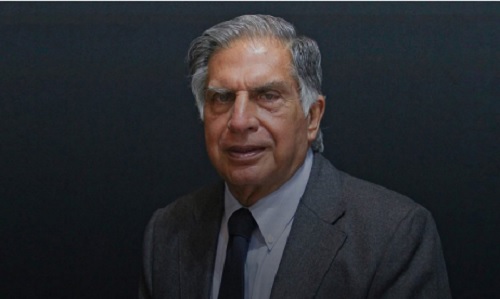
He cared about employees and citizens as well as profit
OBITUARY | THANKOM ARUN | Professor of Global Development and Accountability, University of Essex
Ratan Tata, who has died at the age of 86, was a giant of global industry, whose interests included cars, steel, hotels, travel and tea. But he was also hailed as a visionary whose work went far beyond the business world, through his company’s commitment to social causes.
As the head of Tata Group, an Indian business empire founded over 150 years ago, Tata became deeply intertwined with India’s corporate growth and societal development. And he was instrumental in expanding the Tata’s global presence.
One of his most notable achievements was buying the British tea company Tetley for £271 million in 2000, making Tata one of the largest tea companies in the world.
It was a bold step towards transforming the Tata group from an Indian powerhouse into a global player. So too was the acquisition of Jaguar Land Rover in 2008.
Despite the motoring company’s financial struggles at the time, Tata saw potential in the British brand. He oversaw significant investment in technology and design, and his gamble paid off. New models gained global recognition and Tata Motors became a major force in motoring.
Yet another defining moment in Ratan Tata’s leadership was the US$12 billion (£9.2 billion) purchase of Corus Steel in 2007, one of the largest takeovers in Indian corporate history.
Although the deal presented challenges, including fluctuating steel prices and economic downturns, it underscored Ratan Tata’s strategic vision of expanding the company’s global footprint – and his ability to see beyond short-term gains and focus on long-term growth for the group.
Not all of his plans worked out of course. He was heavily involved in the creation of the Tata Nano in 2008, which was supposed to be a car that was an affordable and safer alternative to two-wheeled vehicles.
Billed as the “world’s cheapest car”, it cost just over US$2,000. But the Nano probably deserved better marketing and less hype, and was discontinued in 2019. Yet it remains a symbol of the company’s innovative spirit – and Ratan Tata’s determination to improve the everyday lives of Indians.
Philanthropy
That vision was also clear in the ethical business practices that mean much of the Tata group’s profits are used to support philanthropic work in education, healthcare and scientific research.
There are several Tata research centres in India, including the Tata Institute of Social Sciences. Tata Trusts have also contributed to the likes of Harvard Business School and the London School of Economics.
His dedication to philanthropy was also displayed in moments of crisis, particularly after the 2008 Mumbai attacks which targeted the Taj Mahal Palace Hotel, owned by the Tata Group. Ratan Tata later ensured that all affected employees and guests were provided with medical care and financial compensation.
And when COVID changed the world, Tata Steel announced that it would continue paying salaries and medical benefits to the families of Indian employees who died from the virus, until the deceased worker would have turned 60.
Ratan Tata’s compassionate response to crises, providing aid during natural disasters and supporting communities in need, further solidified his reputation as an industrialist who placed people’s wellbeing at the core of his business.
Ratan Tata’s legacy as a “people’s industrialist” is cemented by his deep sense of responsibility toward improving the lives of ordinary people. “I would like to be remembered as someone who made a difference; nothing more, nothing less,” he once said.
Many Indians will remember him as something more. His philanthropy and inclusive approach to business have made a lasting and positive impact on India. And his ethical leadership, long-term vision, and deep compassion for others has cemented his reputation as a man who worked not just for profits, but for the betterment of society as a whole.
****
Thankom Arun is Professor of Global Development and Accountability, University of Essex
Source: The Conversation
 The Independent Uganda: You get the Truth we Pay the Price
The Independent Uganda: You get the Truth we Pay the Price





